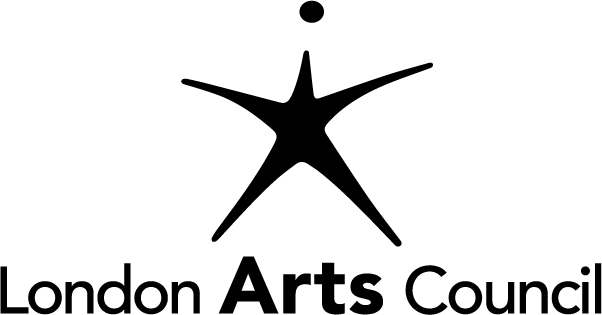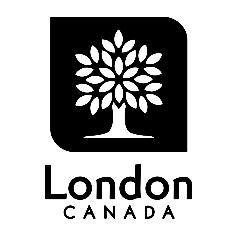|
Gabriel Ndayishimiye was sponsored to study in Canada through the Student Refugee Program at Huron University College in 2016. He is the author of Run, Elvin: The Rising of a Rejected Stone (forthcoming). Currently, he works as the Equity and Diversity Advisor to the President at Huron. In that capacity, he has conducted a series of interviews and surveys to establish areas for urgent and ongoing improvement with regards to campus inclusivity at Huron.
Gabriel holds a Bachelor of Arts: Honours Specialization in Globalization Studies from the University of Western Ontario. He has received an offer of admission to undertake the Full-Time Master of Arts — Immigration and Settlement Studies program at Ryerson University for the academic year starting Fall 2021. Gabriel is also a BIEA-RSC Graduate Attaché, University of Oxford’s Refugee Studies Centre (RSC) and the British Institute in Eastern Africa (BIEA). Photo credit: Osman Ali Hirad
|
Can you tell us a little about yourself and your writing (themes, accolades, notable experiences)? |
I am a displaced colonized intellectual from London, Ontario, originally born in Rwanda — February 1994. As a result of the Rwandan genocide, my family fled for protection to refugee camps in Tanzania, and later we ran to Dzaleka, a refugee camp in Malawi. I attended my primary education in Dzaleka and completed my secondary school studies at Dzaleka Community Day Secondary School in 2013.
In 2014, I was offered a scholarship to pursue a 3-year online Diploma program in Liberal Studies by a Catholic institution called Jesuit Commons: Higher Education at the Margins (JC: HEM) in Dzaleka. The JC: HEM started in 2010 with a mission to address the lack of opportunities for migrants and refugees through online education. Courses were offered by Regis University in the US. And, graduates of the program were awarded by Regis. I spent days in the Learning Centre as an American student, only to become a refugee again when the doors shut behind me at sunset. I couldn’t be more thankful for this first glimpse of another world, a world full of possibilities. This opportunity made me a happy young man in the camp but instilled in me a deep yearning for more.
In 2015, I applied for the World University Service of Canada (WUSC) Student Refugee Program. I was selected for the program’s 2016-2017 intake. I arrived in Canada in 2016 as a sponsored student at Huron University. I currently hold a Bachelor of Arts: Honours Specialization in Globalization Studies from Western University. Also, I am working as the Equity and Diversity Advisor to the President at Huron. In that capacity, I have conducted a series of interviews and surveys to establish areas for urgent and ongoing improvement with regards to campus inclusivity at Huron.
I am excited to go back to school this September. I have received an offer of admission to undertake the full-time Master of Arts – Immigration and Settlement Studies program at Ryerson University for the academic year starting Fall 2021. I am also a BIEA-RSC Graduate Attaché, University of Oxford's Refugee Studies Centre (RSC), and the British Institute in Eastern Africa (BIEA).
How has the past year, especially with the added spotlight on anti-racism, impacted your writing? Has the creative process been altered for you and how do you cope with that? |
My writings have focused on social and political issues and critique the neo-colonial and racialized knowledge structures on which the international refugee system is based. I consider myself a displaced colonized intellectual from my experiences as a refugee and now a western educated young black man in Canada. Meanwhile, I am doing all I can to fit into a system that has continuously rejected people like me. But — what other options do I have in a system haunted by my very being? – A Black Man in a White World!
In your opinion, how has the passing of George Floyd impacted anti-Black racism discourse? Are these impacts for the better, or for the worse? |
The death of George Floyd was a stark reminder to global society of the plight of Black people’s racial and discrimination experiences with North American institutions. Floyd’s agony awakened anti-racist communities around the world to denounce systemic racism against members of the Black community, including all other racialized groups – across North America and beyond. In London, Ontario, we witnessed unapologetic demonstrations purporting to stand in solidarity with members of the Black community. And, of course, statements pledging support to fight racism, hate, and xenophobia were announced by various institutional leaders. Institutional changes that we have seen since the passing of George Floyd are positive and promising. For example, in the Higher Education sector, we have witnessed how many universities responded by carrying out campus climate surveys to address racial discrimination, including other forms of systemic oppression. In this capacity, many institutions have reviewed their policies, programs, and initiatives to ensure they align with leading Equity, Diversity, and Inclusion Practices.
What role do you think art plays in anti-Black discourse, especially as it’s a discussion often politically-charged?
|
In one of her books, Teaching Community: A Pedagogy of Hope, bell hooks reminds us that managing and grappling with one’s blackness in spaces that are not welcoming to Black people and other people of colour is highly political. In such spaces, Black people who survive racial attacks and other forms of oppression are those who know how to effectively use their very oppression as a political tool for survival. For so long, art has been one of the strategies individuals have used to build communities and bring people together. Many people feel threatened and attacked by those who advocate for racial equality. Various forms of art allow for opportunities for self-expression without making others feel threatened. For example, using the pride of Black identity art expressions in a constant struggle to fight the inferiority and backwardness forced upon the Black body. However, while art is among other tools to fight against racism, the political will to change systems of oppression goes a long way.
In a COVID-19 world, how have you been meaningfully creating? |
I have been working on my memoir titled Run, Elvin: The Rising of a Rejected Stone, the first in my planned trilogy of my life as a young refugee who, through good fortune, struggle, and determination, immigrated to Canada for post-secondary studies.
The book is in the form of letters and essays to my son, Elvin, who currently lives with his mother in Malawi. The sequel (working title) – The World I Know: An Open Letter to Mr. Thomas MacVoy – will give an account of my experiences as an undergraduate student [my journey to self-discovery as a displaced colonized intellectual] at Huron University in London, Ontario. The third book (working title) – Refugee, Student, Man: Navigation and Deviation in Exile – will be a candid autobiography of my life up to the completion of this very personal and ambitious project. This third book will discuss what it meant to me to be a refugee, to grow up fatherless and away from my birth mother, but also what it meant to be a child growing up in refugee camps and, as a young adult, pursuing hopes and dreams that only an enlightened few knew how to support.
In Run, Elvin, I recall my life in the crowded dusty streets, with limited resources, and limited hope of a life outside the refugee camps in Africa and now, how access to higher education in Canada has changed my life in ways I could never have dreamed.
The target audiences for this memoir are youth aged fifteen years and over who love to read inspiring memoirs (for example, those who enjoy the work of Sidney Poitier, Tara Westover, Allison Pataki, Barack Obama, and Michelle Obama) and students, researchers, and policy and program development professionals in refugee protection, immigrant settlement, and refugee advocacy.
At the Embassy Cultural House, as we use this project to remember George Floyd and other Black peoples who have suffered because of systemic racism, how do you recommend that everyone as individuals keep the memory of George Floyd alive and what does that mean to you?
|
I encourage people to find more and better creative ways and means to voice racial discrimination concerns, including all other forms of oppression. Speaking up and standing in solidarity with the oppressed is also a gesture. But also urge people in positions of power to influence policy to have the courage and political will to do what is right and just for the greater good of humanity. As a Black man, I am always conscious of my skin colour, and I know – we all know – that what happened to Floyd has happened before, continues to happen, and could happen to anyone, Black. It is this consciousness that inspires my writing and activism. My passion is [through writing] to contribute to Black history and literature in North America.
Where can individuals contact you and experience your work?
You can contact me here:
Website: https://gabrieln.life/
Facebook: @reminisce2021
Email: [email protected]
LinkedIn: www.linkedin.com/in/gabriel-ndayishimiye-148973205/
Twitter: https://twitter.com/GabrielNdayish2



















